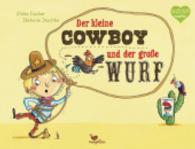Full Description
This work aims to provide an interpretation of certain aspects of Polish Modernist literature that have not been properly recognized until now. The research on Modernist culture in the context of affect includes case studies of avant-garde poetry and works of literature by authors such as B. Schulz, W. Gombrowicz, W. Szymborska, A. S'wirszczyn'ska, L. Lipski, K. Filipowicz, and M. Białoszewski. As a result, this book proposes a more universal theoretical framework and introduces original categories such as affective realism, affective pressure, violence of sensation, relational interpretation, affective criticism, sensed and notional meaning, and affective literary communities.
The author critically investigates the notion of Modernist literature and art, distinguishing between intellectual and realist-emphatic trends. Rather than describing the duality of Modernism, she examines the diversified, inconsistent, and tension-ridden qualities of Modernism evident in individual works as well as in wider formative and cultural tendencies.
Contents
Introduction — Affective Avant- Gardism — Bruno Schulz's Affective Poetics — The Periperformative as a Literary
Device: The Bottom Up Approaches of Witold Gombrowicz — Carrier of Memory: Leo Lipski's Economy of Affect — The Most Sacred Matter: On Collecting and Hoarding in the Writings of Kornel Filipowicz — Heavy (Non)presence: Gombrowicz Towards the War and the Jews — The Affective Community of the Warsaw
Uprising: Anna Świrszczyńska's Building the Barricade — 'Listen How Your Heart Pounds Inside Me':
Embodied Outsideness in the Poetry of Wisława Szymborska — Familiarise: The (Un)common Life of Miron
Białoszewski — Affective Realism: An Introduction — The Violence of Impressions: Recognising
Affective Literature and Art — Avant- Garde Formlessness and Its Fate — Emotional Communities: Towards a Relational Interpretation — A Strange Story and a Happy End — Bibliography — Index of Notions — Index of Names








